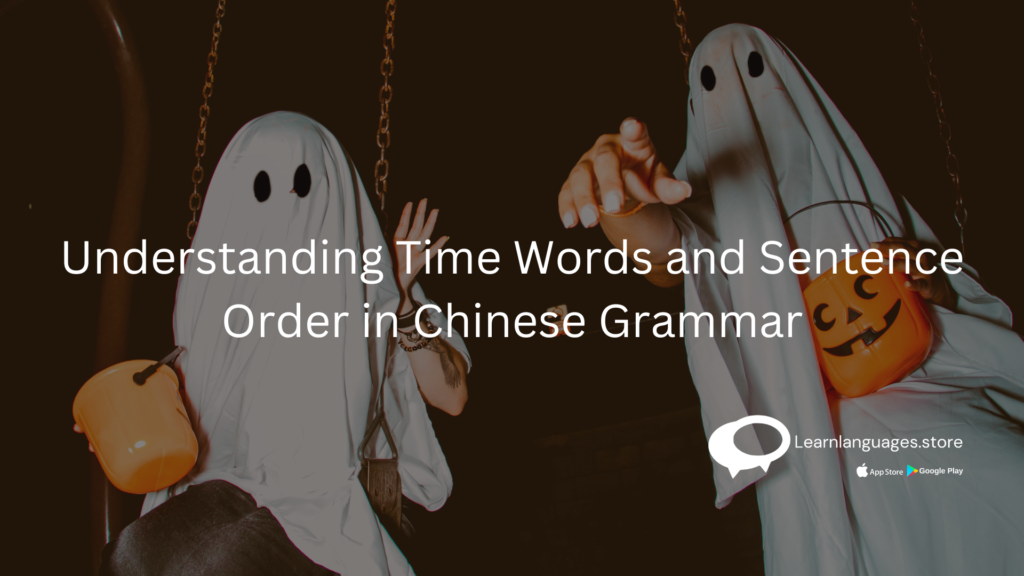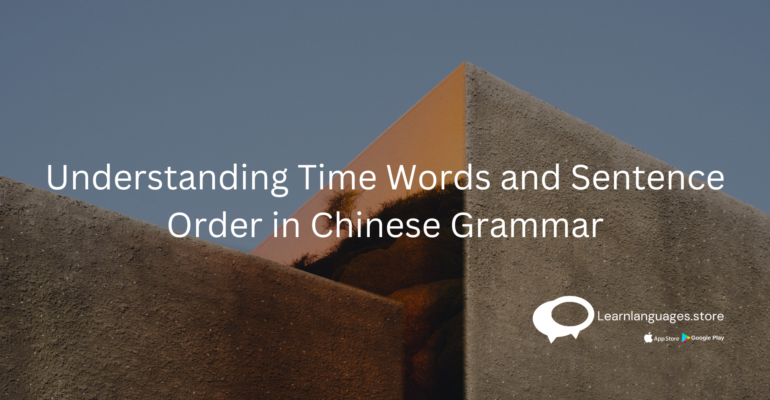Understanding Time Words and Sentence Order in Chinese Grammar
Understanding Time Words and Sentence Order in Chinese Grammar
Estimated reading time: 2 minutes

Time words play a crucial role in structuring sentences in Chinese, and knowing where to place them is essential for speaking correctly. In Chinese, you have two options for placing time words within a sentence.
Structure:
- Time + Subject + Verb + Object.
- Subject + Time + Verb + Object.
So, if you begin with the “time first” English word order, you can continue with it. However, if you’re saving the time word for the end of the sentence, it won’t sound natural to Chinese speakers.
Examples:
- 昨天 我 去 了 酒吧 ।
Zuótiān wǒ qù le jiǔbā.
(Yesterday I went to the bar.) - 我 昨天 去 了 酒吧 ।
Wǒ zuótiān qù le jiǔbā.
(I went to the bar yesterday.) - 下 个 星期 他 要 回 国 ।
Xià gè xīngqī tā yào huí guó.
(Next week he is going back to his country.)
Exceptions: When using time words like “今天” (jīntiān – today) and “明天” (míngtiān – tomorrow), they generally appear at the beginning of the sentence.
Grammar Explanation: This structure allows flexibility in sentence formation. Whether you place the time word at the beginning or after the subject depends on the emphasis you want to give to the time aspect.
Learn Languages Store
Vashi,
Email: services@learnlanguages.store










